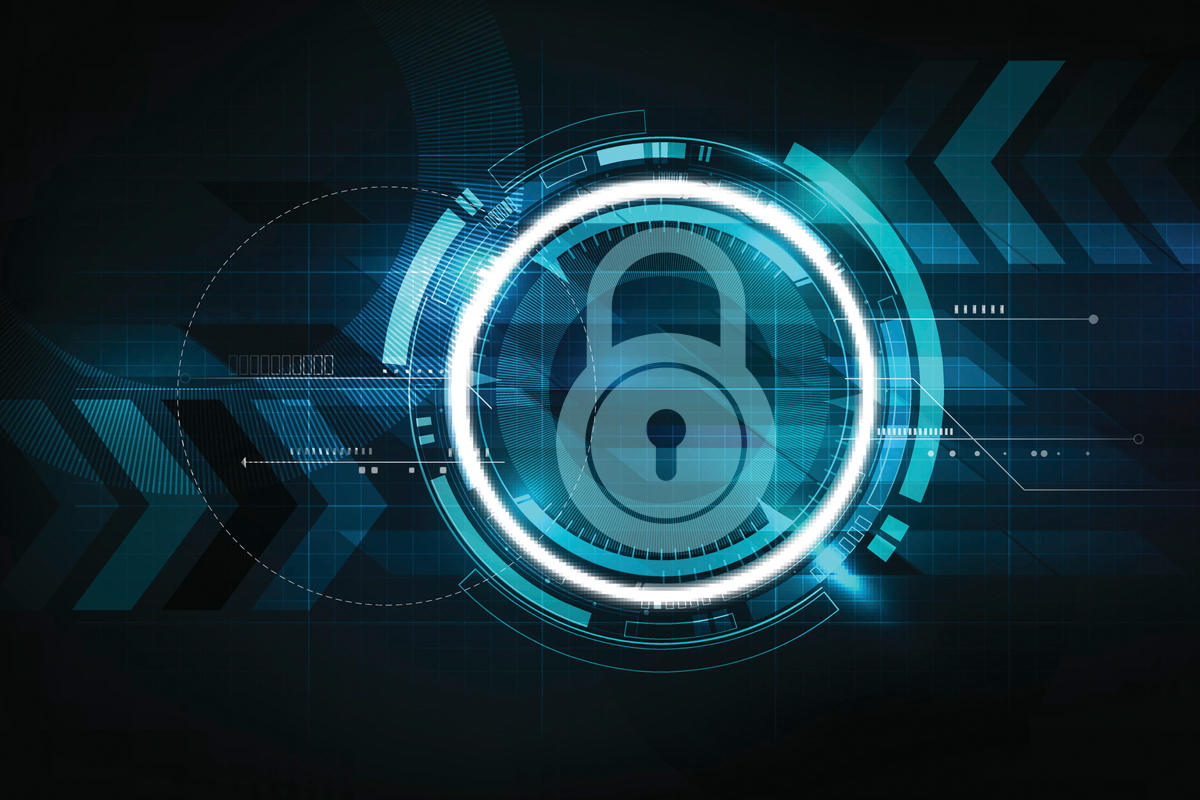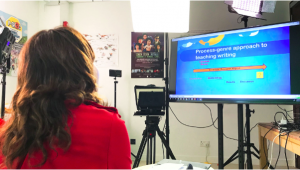
How surveillance capitalism significant to data and privacy
In the era of the rapid development of technology and network, they bring us more convenient and advanced life. The number of channels for people to gain information has been increasing, as well as, the timeliness and effectiveness of information are growing stronger and greater. However, while using the network to facilitate our life, people should also pay attention to network security issues, i.e. personal information leak, fraud, internet addiction and so on. Today, unauthorized disclosure of personal information is one of the major problems that people should be aware of.
In our daily life, we all know that we have to protect our own privacy and would not easily give out our personal info to other people. However, take a deeper thought, we seem to be “naked” in this era of informational development. We expose our personal information inadvertently, from online shopping to registering an account; from filling out a questionnaire to participating in a lucky draw. In the past decade, a term of Surveillance Capitalism has appeared in the visual field of public. The professor of Harvard University, Shoshanna Zuboff in her book “The Age of Surveillance Capitalism” coined a term “Surveillance Capitalism” which is “the monetization of data captured through monitoring people’s movements and behaviors online and in the physical world”(Rouse,2018). From this, a question has been raised “how do the companies know consumer’s behaviors ?” Google, as the pioneer of the big data, is a perfect example of analysis the Surveillance Capitalism. As advertising is one of the fastest, most cost-effective and effective ways of transmitting information, many companies have chosen this marketing channel to promote their products and services. Those companies have been using special methods and technical support to hide the fact that they are actually capturing customers info into their systems. Advertising is ubiquitous in our daily life, i.e, TV, bus stop, Youtube and many other types of promotions. What caught my attention was once that I received an email about a pair of shoes and then I browsed on Youtube, I was surprised by the advertisement before the video was exactly about the shoes. I was shocked. It feels like my personal information has been leaked. Email is a very private and important platform for people to communicate, especially at work. However, according to the Wall Street Journal, Google allows hundreds of outside software developers to read and store personal information from millions of the company’s customers, as long as they have consented(Evans, 2018). This is how google share user information to third parties. Although in 2018, Google has claimed that they “would no longer scan people’s Gmail emails for keywords that could be used to target ads at them”(Meyer,2018). What makes people more worrying is that “the possibility of those third-party services sharing users’ data with other third parties” (Meyer,2018). Google, one of the biggest data company, it really disappoints many users.
Though, I used an ad blocker to block all the advertising on my computer and phone in order to skip the advertisements and prevent my personal information leak. Anyhow, everything has two sides, ad blocker can save some time by skipping the advertisements but does it really safe? As Stommel and Michael said that we need to see what the tools say they do and comparing that to what they actually do (Stommel&Michael, 2018). According to an independent security researcher, he found that “eight browser extensions used by around 4 million Firefox and Chrome users were harvesting data”(O’Flaherty, 2019). The leaked data is not only the personal purchase habits but also including “tax returns, GPS location, cloud services, and data, file attachments, credit card information, genetic profiles and online shopping history”(O’Flaherty, 2019). People should be aware of the harm of Internet personal information disclosure.
What are the consequences of disclosing personal information? First of all, the user’s personal property is threatened. Criminals can collect personal information from an illegal way and analyze the characteristics of the user to conduct crimes. For example, I have received a call, the person in the call saying that I had a package seized by Chinese customs. In the package, there are some passports that belong to money laundering crimes. On the call, he can accurately provide my personal information. Fortunately, I have heard this kind of case in social media, otherwise, I don’t know what the consequences will happen. Secondly, leaking information does not only lead threats to individuals, but also nations and companies. If criminals sell the information to a company’s competitors, it will cause huge loss. Suppose the company that corporate with the nation confidential has been leaked, it also poses a threat to national security. For instance, in 2016, there were about 50 million Turkish citizens’ information has been leaked, including the president of Turkey, Recep Tayyip Erdoğan(Tait,2016). The leaked information including national identity numbers, addresses, dates of birth and names of parents that are downloadable in a 6.6 GB file(Tait,2016). This leak becomes the major breach for the Turkish authorities. The last threaten of personal information leaking is undermined personal reputation. Although leaking private information causes serious threats to individuals, companies, and counties, it is even more frightening that privacy leaks can affect a person’s reputation. All the bad things that others have done under your name are your responsibilities to deal with. In the end, even though you might be able to prove innocence, personal reputation is still undermined.
Therefore, individuals need to be aware of all the possibilities of leaking information. Users who post sensitive information and share their locations on social media will easily be targeted by hackers or criminals. As well as the internet questionnaire that requires fill in users personal information. According to Hern and Cadwalladr, Aleksandr Kogan collected the information of Facebook users once they download his This Is Your Digital Life app (Hern&Cadwalladr, 2018). Even more, The author said that “For the users who did install the app, potentially their entire mailbox history was uploaded”(Hern&Cadwalladr, 2018). Although Facebook and Kogan refused to admit everything, the Facebook users who downloaded the app and being information leaked are the best witnesses. In addition, citizens should raise their awareness of self-protection, the government should also take action as well. The government website operation management needs to fix the leak immediately to stop more victims get involved. Also, supervisors of internet security can use 24/7 technique to monitor personal information. Once the problems are founded, specialists can use social media to warn citizens in order to minimize the damage of personal information leak and state secrets. Other than this, the reporters or issuers before they publish articles and news, they need to be careful that all personal information does not appear. If all levels of the judiciary can immediately crackdown on information disclosure crimes from today, it will not be difficult for the public to regain a sense of security about personal privacy.
Network supervision is undoubtedly an urgent task. It is not an exaggeration to say that everyone is facing the threat of personal privacy disclosure. Though, every person needs to take responsibility to protect personal information in order to avoid losses.
References
Evans, P.(2018). Google faces criticism for giving 3rd-party apps access to user emails. CBC News. Retrieved from https://www.cbc.ca/news/business/gmail-privacy-security-1.4733533
Hern, A., & Cadwalladr, C. (2018, April 13). Revealed: Aleksandr Kogan collected Facebook users’ direct messages. Retrieved from https://www.theguardian.com/uk-news/2018/apr/13/revealed-aleksandr-kogan-collected-facebook-users-direct-messages
Meyer, D. (2018). Google Admits That It Lets Outside Services Share Your Gmail Data. Retrieved from https://fortune.com/2018/09/21/google-gmail-privacy-data-third-parties/
Morris, S. M., & Stommel, J. (2018). A Guide for Resisting Edtech: The Case Against Turnitin. An Urgency of Teachers. Retrieved from: https://criticaldigitalpedagogy.pressbooks.com/chapter/a-guide-for-resisting-edtech-the-case-against-turnitin/
O’Flaherty, K. (2019,). Data Leak Warning Issued To Millions Of Google Chrome And Firefox Users. Retrieved from https://www.forbes.com/sites/kateoflahertyuk/2019/07/19/data-leak-warning-issued-to-millions-of-google-chrome-and-firefox-users/#5b6ac1b43ded
Rouse,M.(2018).What is surveillance capitalism? – Definition from WhatIs.com. Retrieved from https://whatis.techtarget.com/definition/surveillance-capitalism
Tait, R. (2016, April 4). Personal details of 50 million Turkish citizens leaked online, hackers claim. Retrieved from https://www.telegraph.co.uk/news/2016/04/04/personal-details-of-50-million-turkish-citizens-leaked-online-ha/





